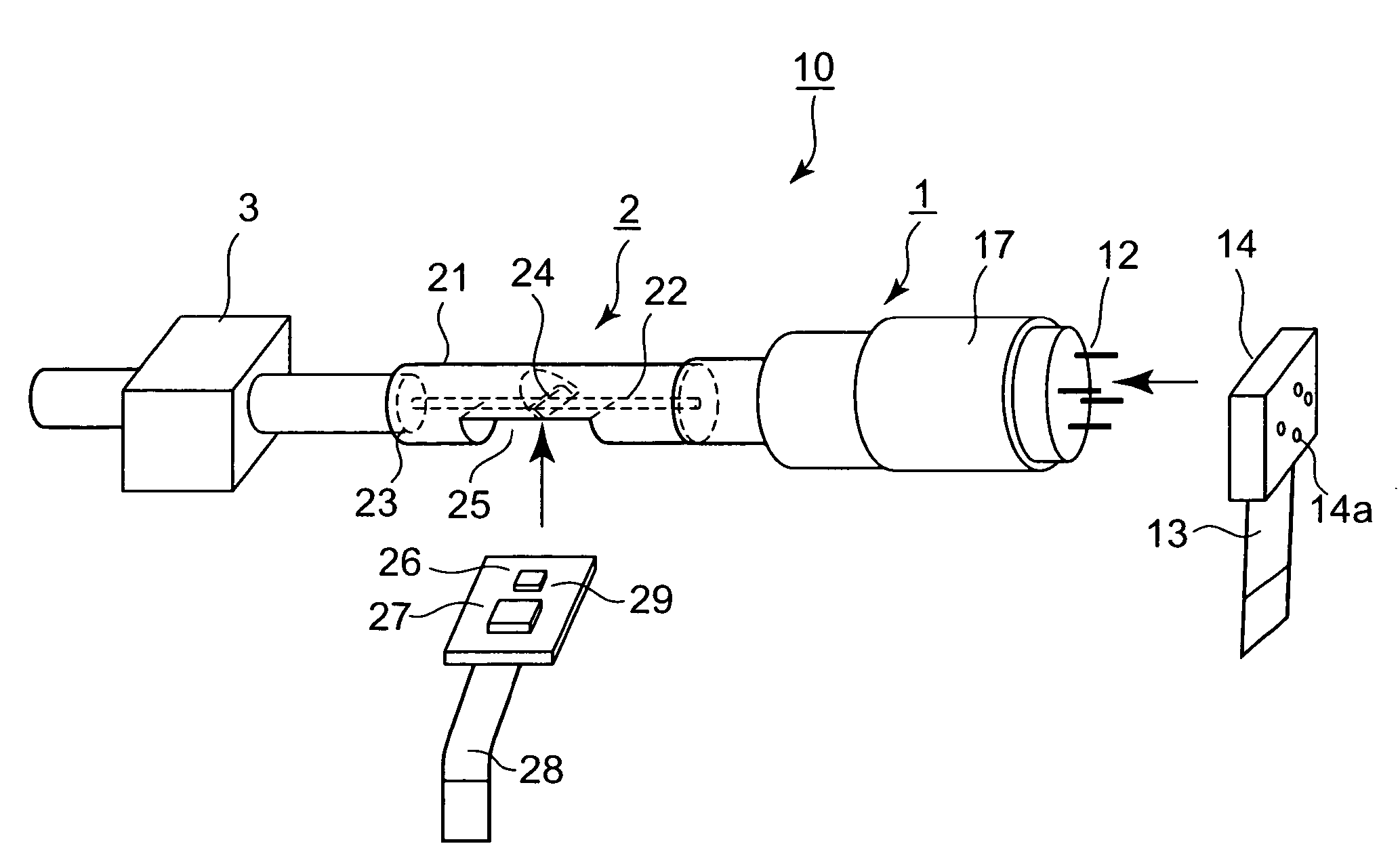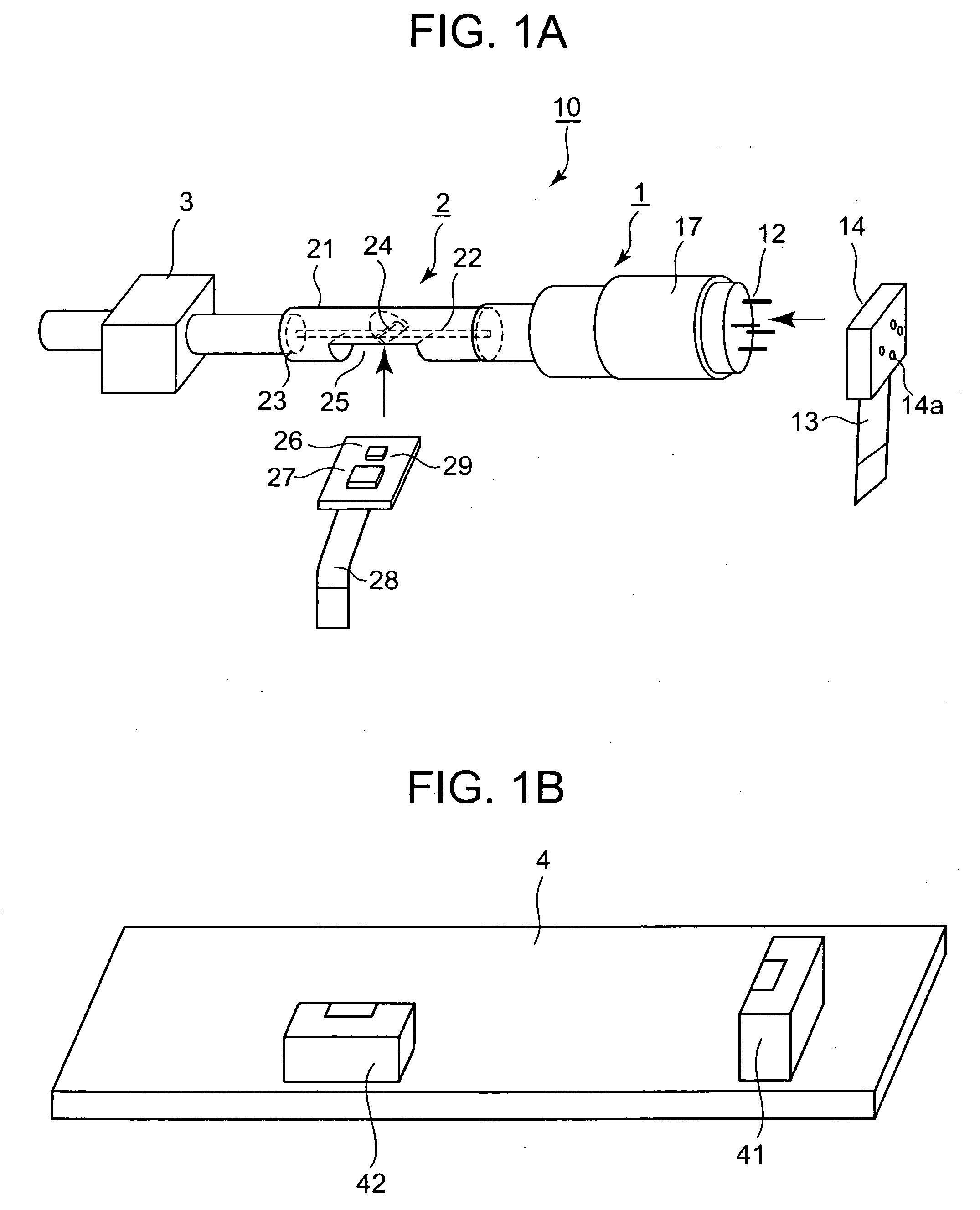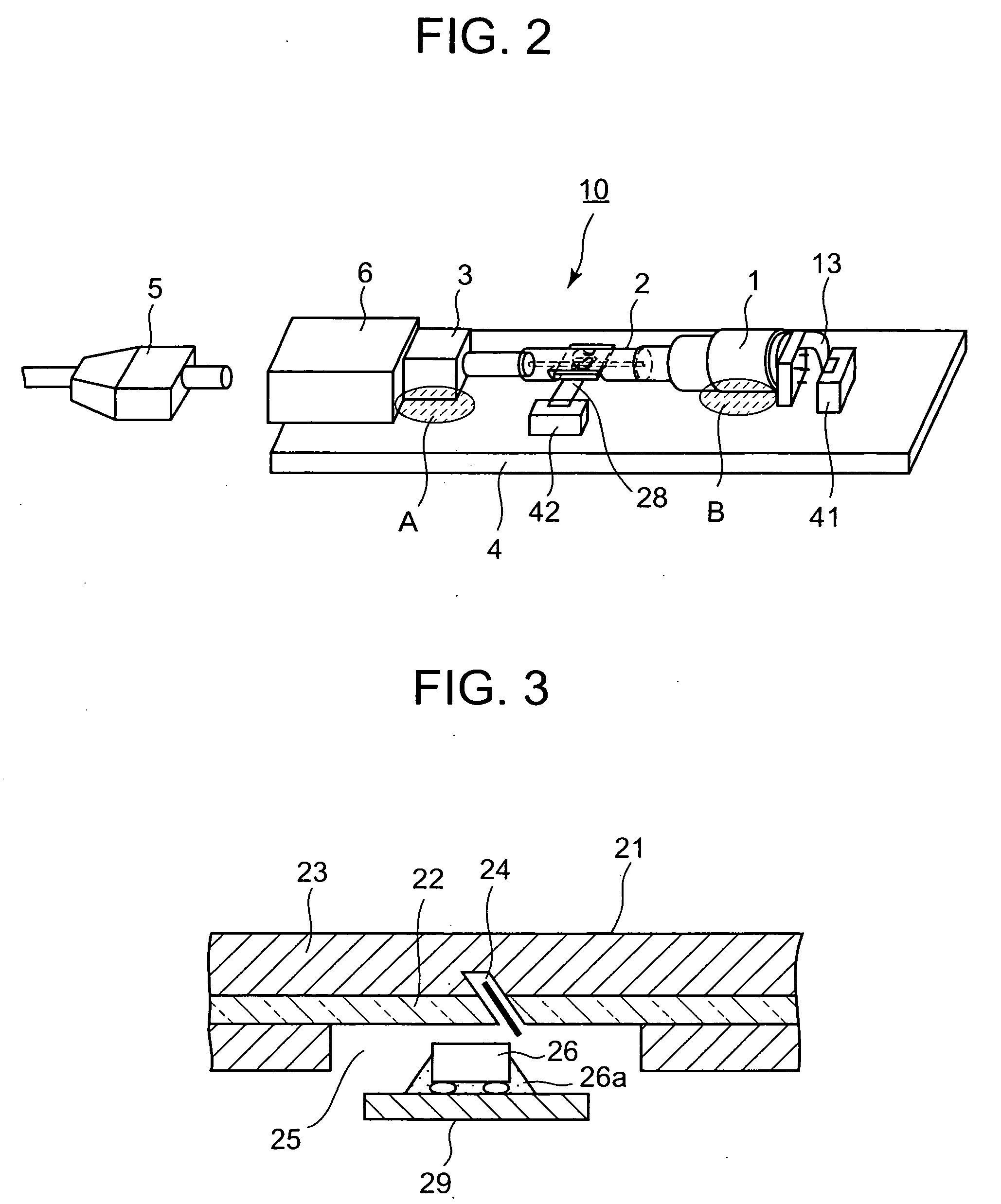Optical transmission/reception module
a technology of optical transmission and reception module, applied in the field of optical transmission/reception module, can solve the problems of difficult acceleration and difficult miniaturization, and achieve the effect of increasing the mounting density and large-scale integration of optical transmission devi
- Summary
- Abstract
- Description
- Claims
- Application Information
AI Technical Summary
Benefits of technology
Problems solved by technology
Method used
Image
Examples
first embodiment
[0034]FIG. 1A is a perspective view showing the optical connection condition of the major elements is a optical transceiver module according to the present invention; FIG. 1B is a perspective view of a circuit substrate wherein the major elements shown in FIG. 1A are mechanically fixed and electrically connected; FIG. 2 is a perspective view showing the connection and fixing conditions of each element shown in FIGS. 1A and 1B; and FIG. 3 is a sectional view showing the detailed construction of the transmission section optical system shown in FIGS. 1A and 1B.
[0035] In each of these figures, the optical transceiver module, shown in its entirety in Reference No. 10, comprises a transmission section optical system 1, a receiving section optical system 2, and an optical I / O optical receptacle 3 which are mutually connected optically.
[0036] Of them, the transmission section optical system 1 comprises a LD can 11 with a lens which comprises a laser and an optical fiber or an optical waveg...
second embodiment
[0044] Thus, the length of the signal input terminal to the transmission section optical system 1 can be minimized, and the high frequency characteristics can be enhanced. Furthermore, deviation in the rotational direction to the optical axis of the LD can 11 can be absorbed easily by arranging the leading direction of the electric signal input lead wire 12 of the LD can 11 and the extension direction of the signal line of the flexible cable 13 to be almost vertical. In addition, the substrate 15 with the LD flexible cable in the transmission section optical system 1 can be assembled so as to be parallel with the substrate 29 with the flexible cable in the receiving section optical system 2, and thereby, the mounting of the optically connected optical module on the circuit substrate 4 can be facilitated, and the length of the substrate in the direction of the optical axis can be minimized.
third embodiment
[0045]FIG. 5 is a perspective view showing the construction in the optical transceiver module according to the present invention. In this embodiment, the afore-mentioned LD can 11 is determined to be the transmission section optical system 1, one end of the optical fiber 21 in the afore-mentioned receiving section optical system 2 is connected to the transmission section optical system 1, the optical fiber pig tail is connected to the other end of the optical fiber 21, and the pig tail-type fiber pig tail 7 is connected, to construct the optical transceiver module.
[0046] According this third embodiment, stress applied at the time of attachment / detachment of the optical connector will cease to affect the transmission section optical system 1 and the receiving section optical system 2. In addition, when the transmission section optical system 1 and the receiving section optical system 2 are simultaneously fixed rigidly to the circuit substrate or the like, the generation of any stress...
PUM
 Login to View More
Login to View More Abstract
Description
Claims
Application Information
 Login to View More
Login to View More - Generate Ideas
- Intellectual Property
- Life Sciences
- Materials
- Tech Scout
- Unparalleled Data Quality
- Higher Quality Content
- 60% Fewer Hallucinations
Browse by: Latest US Patents, China's latest patents, Technical Efficacy Thesaurus, Application Domain, Technology Topic, Popular Technical Reports.
© 2025 PatSnap. All rights reserved.Legal|Privacy policy|Modern Slavery Act Transparency Statement|Sitemap|About US| Contact US: help@patsnap.com



